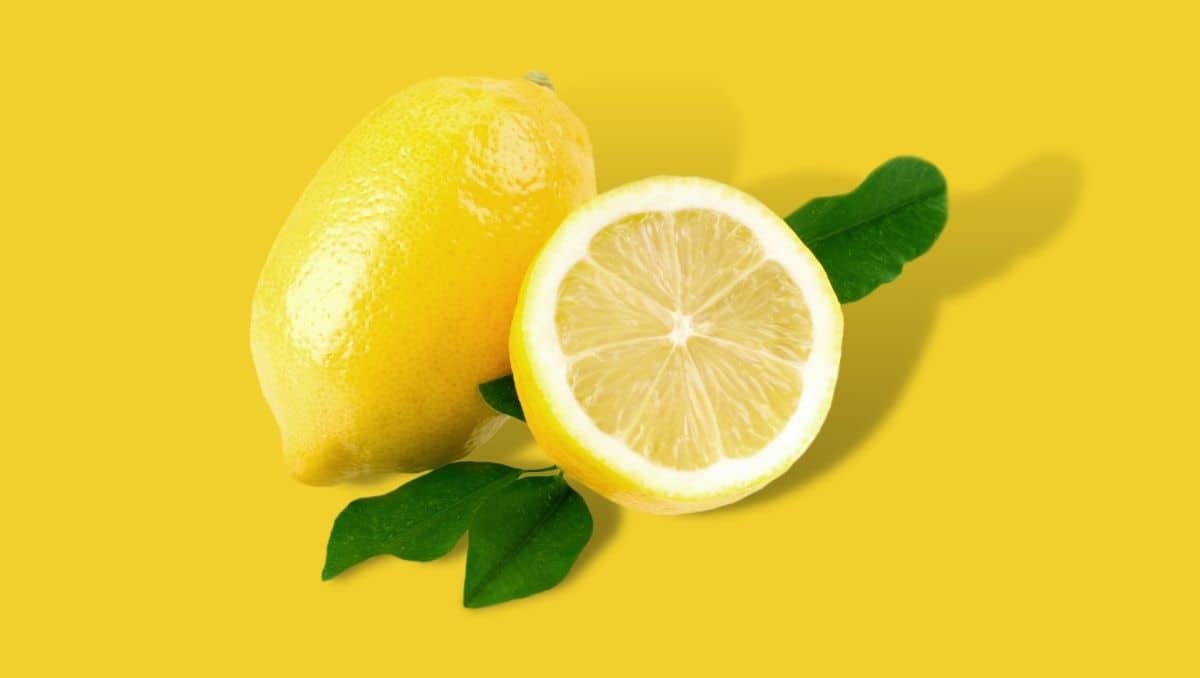Lemon juice is an essential ingredient for cocktails. There's hardly any other element used as often as the tart and tangy citrus juice.
It's key to all Sour cocktails, a category of cocktails that includes iconic drinks like the Whiskey Sour. And also, many other cocktails rely on using this zingy juice. Just think of the French 75, Lemon Drop Martini, Paper Plane, Ve.n.to, and the Penicillin cocktail, among many others.
This article will talk you through the different options when using lemon juice in your drinks.
I'll also try to answer the most important questions when working with lemon juice, like "How does fresh lemon juice compare to aged lemon juice?", "Is bottled juice a good option?", and "Can you substitute lemon for lime juice?".
But let's start with the basics.
What does lemon juice do in cocktails?
Lemon juice covers the harsh notes of alcohol, adds warmth to warm winter punch cocktails, and brings freshness and lightness to many summer drinks.
Back in the old days, the sole purpose of lemon juice in cocktails was to take away from the harsh bite of spirits. The combination of fresh citrus juice and simple syrup did a great job smoothing out spirits.
Yet, eventually, adding lemon to spirits led to one of the most iconic cocktail families - the Sour cocktails.
And lemon juice can do more than that. Used in warm drinks like a punch, it adds some warmth to the cocktail. On the other hand, when added to summer cocktails, it creates the required freshness.
Finally, lemon juice also counterbalances sweet ingredients. Because cocktail recipes using liqueur or syrup will need a component that levels out the sweetness.
But there are some things to consider and questions to answer when using lemon juice in cocktails.
Different options for lemon juice in cocktails
oes it have to be freshly pressed lemon juice? Should the juice be aged for some time? And are bottled versions from the supermarket a good alternative?
The short answer to all those questions is: freshly squeezed juice is always better in cocktails than store-bought versions. And I want to give you some reasons as to why.
Fresh lemon juice
Many cocktail recipes explicitly require "freshly" squeezed juice. The juice is tangy, acidic, and carries that delicious natural lemon flavor.
Fresh lemon juice works best in refreshing summer cocktails that need a sour kick. Examples would be a Lemon Margarita or French 75.
Making it is also super easy. Roll the fruits on a flat surface with a bit of pressure -This will make juicing the fruit a lot easier. Then cut your lemons in half and juice them with your hands or with the help of a lemon juicer.
The amount of juice one lemon produces depends on the size. But to give you a rough idea: you can calculate with approx. 1.5 oz for an average lemon. That's 50% more juice than a lime contains.
Aged lemon juice
Freshly squeezed lemon juice has this acidic bite to it. Something you need if you want a kick of sour taste in your drink.
With aged lemon juice, results will taste a little less zingy and mellower instead. That characteristic can make a cocktail even tastier, but let me explain this.
When squeezing lemons to make lemon juice, you destroy their cellular structure. That leads to a chemical reaction when enzymes encounter chemical compounds such as Nomilin.
One of the results is a bitter-tasting compound called Limonin. And while bitterness in juices generally isn't very desirable, in this case, it's different.
The bitterness of Limonin is not strong enough to make the juice taste unpleasant. Instead, it takes away the acidic edge of fresh lemon juice.
The entire process is called enzymatic bittering and takes between 4-10 hours. You only have to roll and squeeze your lemon and then let the juice sit for 6 hours before using it.
The result is a more balanced taste with just a little sweetness to it. And when compared to fresh lemon juice, the aged version is preferable most of the time. It takes away the bite of the juice and, therefore, of your cocktail.
By the way: the same technique also works for making aged lime juice.
Bottled lemon juice
Using bottled lemon juice for making cocktails is a common beginner mistake.
If you tasted bottled lemon juice purely, you realize that the aroma and flavor are somehow off. Compared to freshly squeezed lemon juice, the bottled version is slightly sweeter. It is not as bright and fresh and, overall, not as "lemony".
The reason is obvious: Bottled juices need to last longer and contain preservatives and additives. The result is alright but far from fresh juice. And especially in cocktails, you will always taste the difference.
If you should be in doubt, blind taste fresh and bottled lemon juice. I guarantee that everyone will prefer the freshly squeezed option.
Substituting lemon juice for lime juice in cocktails
Lemons and limes are closely related. Therefore many wonder if, ultimately, it makes any difference if you use lemon or lime juice in mixed drinks.
In short: yes, it does make a difference. Both fruits are similarly tart and acidic, but they have different flavor profiles.
Overall the taste of lemons tends to be a bit sweeter. Limes, on the other hand, are more bitter.
Still, if you don't have another option, you can replace lemon juice with lime juice and vice versa. Just remember that the end result will taste slightly but perceivably different.
Final thoughts
If a cocktail recipe asks for lemon juice, it's always better to squeeze it yourself. Fresh juice beats bottled juice any time and will make your cocktails taste a lot better.
For most cocktail recipes, aged lemon juice is a great -if not the best- option. After sitting for a few hours, the harsh acidic taste is almost completely gone. What's left is a pure and mellow citrus flavor.
Also, think about what bars do. Most bartenders prep for an evening by juicing lemons and lemons before their shift starts. The time they're using the juice, it's aged for at least a couple of hours.
For some cocktails, though, I still recommend freshly squeezed juice. Especially, summery drinks like Mojitos and Margaritas, or any drink that relies on a "fresh" taste, in general.

